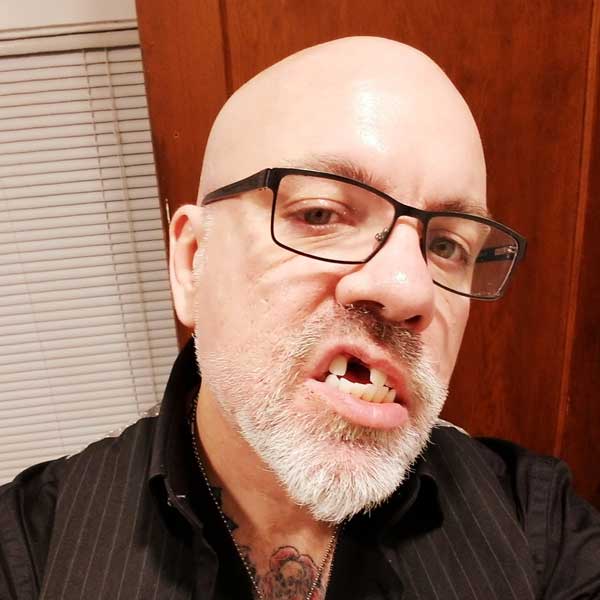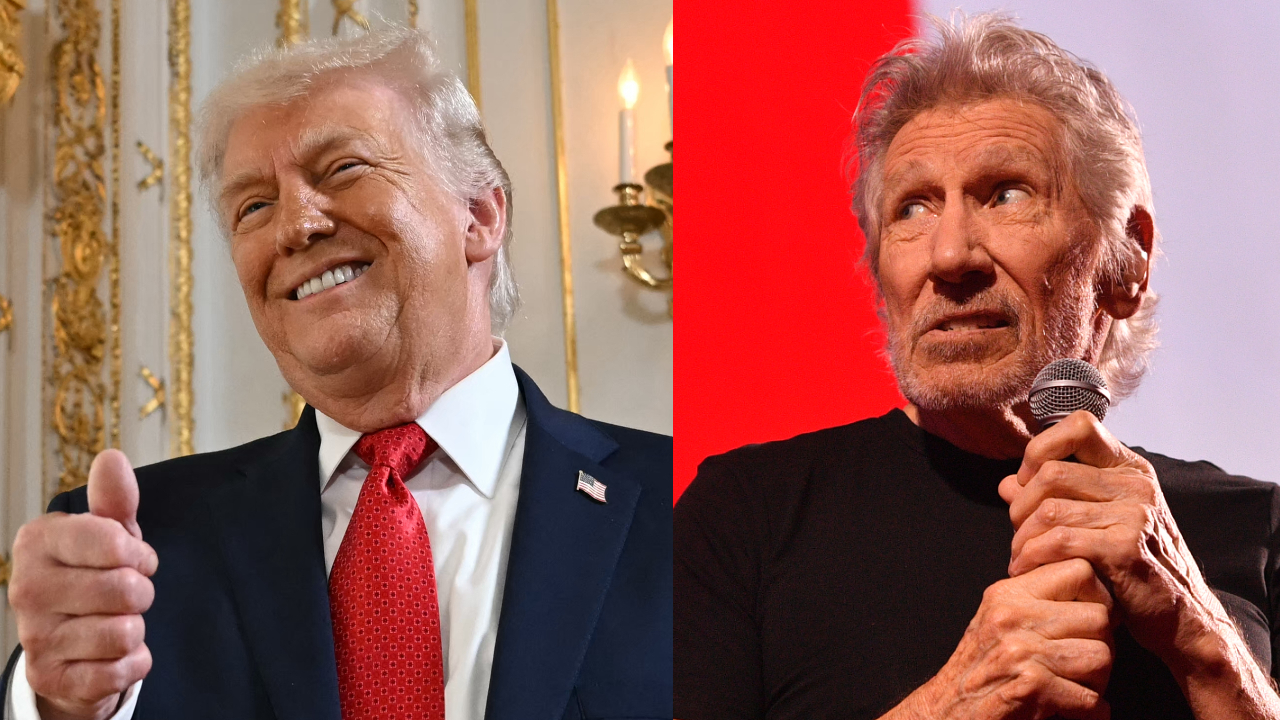"When my helmet hit the speedometer, it said 77mph, when I came to a complete dead stop": The story of The Godz, America's great lost biker band
In the early 70s there wasn’t really any such thing as heavy metal – but there were bands like The Godz who were willing to take things to the limit, even if it cost them their lives
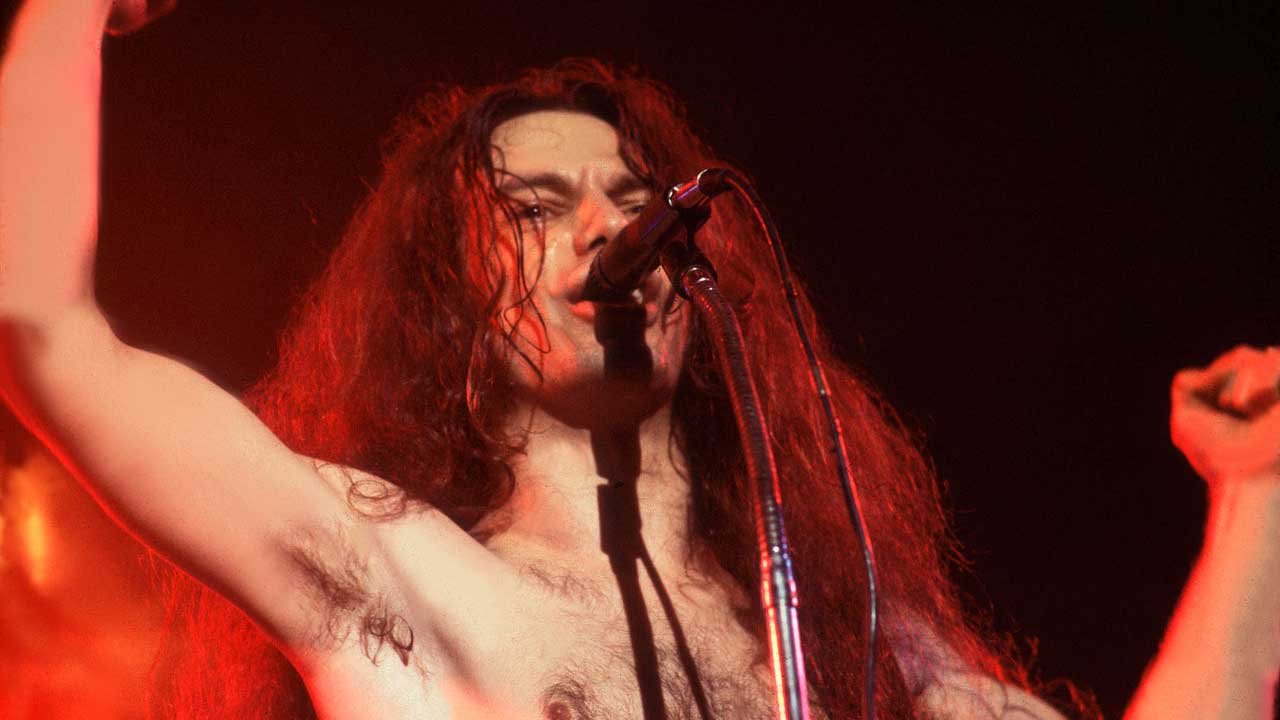
"When you’re closer to the end than the beginning you think about your demise more clearly," Godz leader Eric Moore told Classic Rock in 2014. "There’s no reason to be scared. I know that whichever place I end up, there’ll be a great house band." He was gone just three years later, a beer-drinking, pistol carrying, blue collar rock'n'roller who lived right to the max, right to the end. In 2009, Classic Rock spoke to Eric and told his story.

I have a weathered copy of Rock Scene magazine here from 1979. Amid the fawning odes to Patti Smith and Bowie, there’s a short, brutal article about a scruffy band of motorcycle outlaws from Ohio humbly named The Godz. Just two years into their major label career, and they were already at death’s door, quite literally.
Two members were already dead, their albums were mercilessly slagged by the press and virtually ignored by the buying public, their relentless touring schedule was wearing them down to brittle bones and shredded nerves, their fan base consisted entirely of homicidal bikers and mental patients, and their bass player and erstwhile leader, Eric Moore, had spent more time in jail and in hospitals than he had on the road. None of these facts fazed him in the least, however.
“We’re a rock’n’roll band,” he said in the Rock Scene interview. “No prefix. Not punk, not disco. We are a straight ahead rock band, and we’re gonna be big!”
I wasn’t there, but I am assuming Eric took a deep swallow of something potent at that point.
“I look out and there’s thousands of people, so intense, and so screwed-up,” he continued. “I mean, the first two rows look like Attila the Hun’s frontline troops, and they’re foaming at the mouth. They’re falling over the railing trying to get to us, and the security people are picking them up and throwing them back on the other side. It’s like Night Of The Living Dead.”
Those thousands soon dwindled to hundreds, and by the dawn of the 80s, The Godz retreated to the Midwest, content to drink and brawl with their own kind. But just a few years before, for one brief moment, they were the brightest stars on rock’s horizon. In the late 70s, at the height of disco’s ascension and at the dawn of punk’s infiltration, the unlikely band of long-haired fist-fighters signed a lucrative deal with Casablanca Records, who sent them out on do-or-die arena tours with Kiss and satin worshippers Angel.
Sign up below to get the latest from Classic Rock, plus exclusive special offers, direct to your inbox!
The Godz were the antithesis of both those bands, a no-nonsense crew of beer-swilling uberdudes who plied ear-shattering thunder-boogie, and who treated the road like an endless war campaign. They had the looks, the hooks, the songs and the sound, and unlike their uneasy travelling companions, they had no need for gimmicks or parlour tricks. They were, quite simply, rock’n’roll motherfuckers of the highest order.
So what went wrong? Whose bones got broken, and who burnt the contracts? There have been more than 30 members of The Godz over the last four decades. Some are now dead, some wish they were, and some don’t even remember what happened. But there’s one man who’s been there since the beginning. The biggest badass of ’em all: Eric Moore. Eric is still the leader of The Godz. He sings and plays lead guitar now, and employs the cream of the Columbus, Ohio rock scene to keep his infernal machine rolling. And he’s still living the same kill-for-thrills lifestyle he was in 1976.

In 1973 Moore was a member of the Capitol City Rockets Roller derby (essentially, people on roller skates beating the shit out of each other) team. Eventually, several of the Rockets formed a band with the same title. Fittingly, they played their first gig at the roller rink. Moore had to decide what occupation suited him best. Fate decided for him.
“I had a bad motorcycle landing, and a bad parachute landing. My knees and ankles are gone,” he says, with a rueful chuckle. Now a full-time rocker, Moore continued playing the local circuit. Some reps from Elektra Records saw him playing with the Rockets, and signed them to a contract ten minutes after the gig began.
“It had a lot to do with the way the singer and I interacted,” Moore says, and then adds: “He just died recently.” He pauses. “It was from somethin’ natural,” he says. “Wasn’t drugs or alcohol.”
As if that’s what we’d naturally expect from a friend of Moore’s. The Capitol City Rockets released one self-titled album, but broke up soon after. Moore formed The Godz in 1975 with vocalist Mark Chatfield, drummer Glen Cataline and a crew of local rowdies, including a second drummer, Hayward Law, and keyboard player Michael Adams. After writing a fistful of screeching biker metal anthems, the band hit the road. And that’s when the trouble started.
“Our keyboard player and drummer were killed within the first six months,” Moore says. Law and Adams died in a car crash, on the way to pick up some promo materials for the band in Parkersburg, Ohio. Many bands would take such a major tragedy as a bad omen and call it a day. Not The Godz.
“No, we didn’t think about breaking up,” Moore tells me. “We were hard pressed about what to do next. We were dumbfounded for about two weeks. Nobody wanted to break up. And then Bob Hill, who I had been in the Capitol City Rockets with, he called me up to see if there was anything he could do to help. I said ‘Yeah, you can join my band right now’. And he did.”
I ask Moore how a band can possibly shoulder two deaths in one year. Turns out, they were already battle hardened: “We had a roadie killed about a month before that. He was driving way too fast late at night on open highway. The car came apart on him at 130mph. It actually threw him out the window, then ran over him.”
After quickly building up a rabid following throughout the Midwest, the band signed with Casablanca Records in 1977. Their first order of business was settling the dispute over their name. Unbeknown to the Ohioans, an acid rock band from New York City had been writing and recording under the name since the mid 1960s. Moore recounts how he settled the score.
“One of the guys in that band came to the record company, and I was in the office,” he remembers. “The secretary came back and said, ‘There’s a guy here who says he’s in a band called The Godz, and he wants you to pay him money for the use of the name.’ Well, I had never heard the name before. They had made one or two albums, and they were all fraternity brothers. They did songs like the Black Sheep song, you know, ‘We’re poor little lambs that lost our way…’ That’s the kind of material they were doing. So, you know, I didn’t have any use for buying a record like that. I didn’t know they existed. And I just suggested that he and I go down to the parking lot and whoever came out was The Godz. Well, he just grabbed his briefcase and left. I never heard another word.”
And that’s how you solve problems the Eric Moore way.
“Listen,” Moore says, “if you want to call yourself The Godz you better be willing to prove it.”
Their name firmly established, The Godz were sent out on the road throughout 1976 and 1977. I asked Moore if Casablanca, a label known for signing flamboyant bands, had any image suggestions for the band.
“Not one,” Moore says. “They had Angel in white satin, they had Kiss dressed like clowns, and they had us in black leather. We used to travel a lot with Angel. Talk about two different bands.”
One thing is perfectly clear, Eric Moore did not like touring with Angel.
“Angel were scumbags,” he says, in no uncertain terms. “They stuffed their pants with socks. They did the whole Spinal Tap thing.”
I press Moore for details. He is happy to offer them. “We called Punky Meadows Monkey Petal. He was the sock stuffer. If he had to do an interview or something, it took him 40 minutes to get ready for it. It was just absurd.”
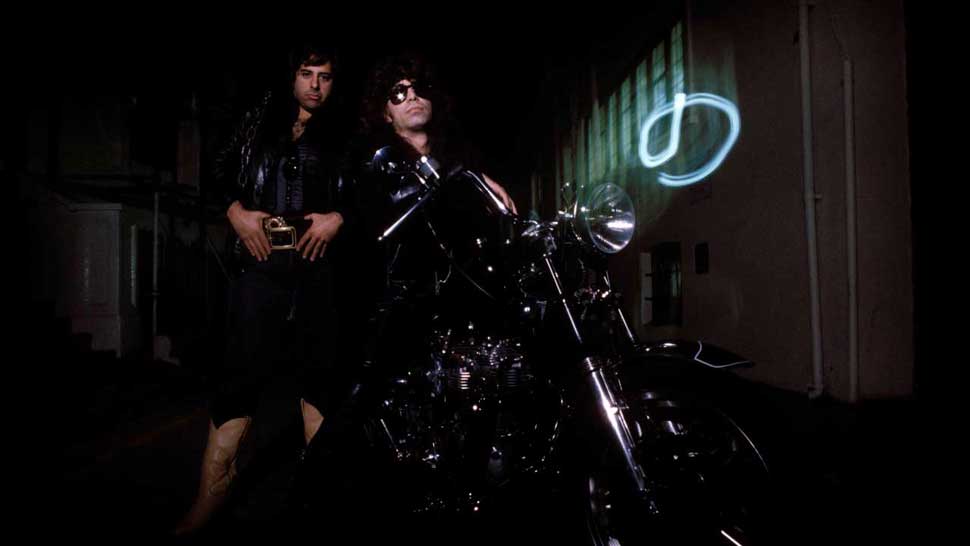
“Gregg Guiffria we called Breck Boy. The back of his amplifier he had a swing-down mirror and a can of hairspray. So if someone was doing a drum solo or something, he’d dive behind his amplifier and do his hair. So, one day we stripped the label off the can of hairspray and put it on a can of spray adhesive. He came back there and sprayed his whole head with it real good, and all of a sudden his hands were glued to his hair. We thought that was funny. He didn’t.”
Despite their antagonism, there was at least one incident when The Godz protected Angel from potential grievous bodily harm.
“Yeah, in San Diego. The house security decided that Angel were fags, and they didn’t like them. They were new security, and they were the second string for the college football team there. They were all just looking for trouble the whole time. We helped Angel get back to their dressing room in one piece. I said into the microphone: ‘If there’s any outlaw bikers in here tonight, we’d like them to come up here and be our security, because we don’t trust these fucks.’ And about 200 bikers came up to the front. I looked at these college assholes and said: ‘There’s not gonna be any security problems, so why don’t you go get a cup of coffee or something?’ So they just left.”
Between tours playing with Judas Priest, Cheap Trick and Kiss, The Godz recorded their first album in the summer of 1977. It was released the next year, to miserable reviews. Rolling Stone wrote that it “epitomised the most wretched excesses of 70s rock.” The reviews didn’t matter. The band sold out 6,000 seat arenas on a nightly basis, and stayed on the road for a harrowing 17 months. As the crowds grew bigger, so did the potential for violence. More than once, Moore found himself on the wrong side of the law after a late-night scuffle. Sometimes, the night would end in a hail of lead.
“Sure, I went to jail a couple times,” he says. “But here’s the thing. Whether it’s a crowd of 1,000 or 30,000 people, when you’re the guy who’s getting all the attention, it comes in the form of some guy who doesn’t like that. It’ll be the guy in the fifteenth row – this actually happened one night. Guy was in the fifteenth row with his girlfriend. His girlfriend cops a nut while I’m up there doing my thing, right?”
“So now it’s four in the morning, we’re loading up our equipment. There’s a bunch of people back in the alley, and all they wanna do is get autographs and shake our hands and stuff. One guy comes out of the dark with his hand out towards me, and there was a gun in it. I reacted. I’d rather be judged by 12 people than carried by six, you know?
“And the way the law is now, you can’t even reasonably defend yourself. I walk into a courtroom looking like me, and somebody got shot over some horseshit. Even though you’re innocent, somebody wants you to do some time. So that’s what happens.”
The Godz released their second LP, the frantic Nothing Sacred, in the spring of 1979. On July 5, 1979 Eric Moore got into a near-fatal motorcycle accident, effectively putting him out of commission for nearly a year. As Moore states, he’s still feeling the effects.
“I still have problems with my leg a couple times a week,” he says.
“I only broke one bone, but my insides got shook up real bad. I had a lot of internal displacement of organs. When my helmet hit the speedometer, it said 77mph, when I came to a complete dead stop. It was a brand new motorcycle, the first time I didn’t have a Harley. It was not my kind of motorcycle, and I had three Quaaludes and some Jack Daniel’s in me, and I decided I wanted to go fast.”
While Moore tended to his injuries, his band fell apart. “Everybody who was once in power jumped in to try and fill the vacuum. I came back to a miserable mess. We had gigs booked states apart on the same day, just everything was awful.”
Things began unravelling quickly. Casablanca dropped the band, and stiffed them for the remainder of their contract.
“They had the nerve to send me a piece of paper that said they owe me $181,000 dollars but they’re not going giving it to me,” Moore says. “I knew I would never see that money. And I haven’t.”
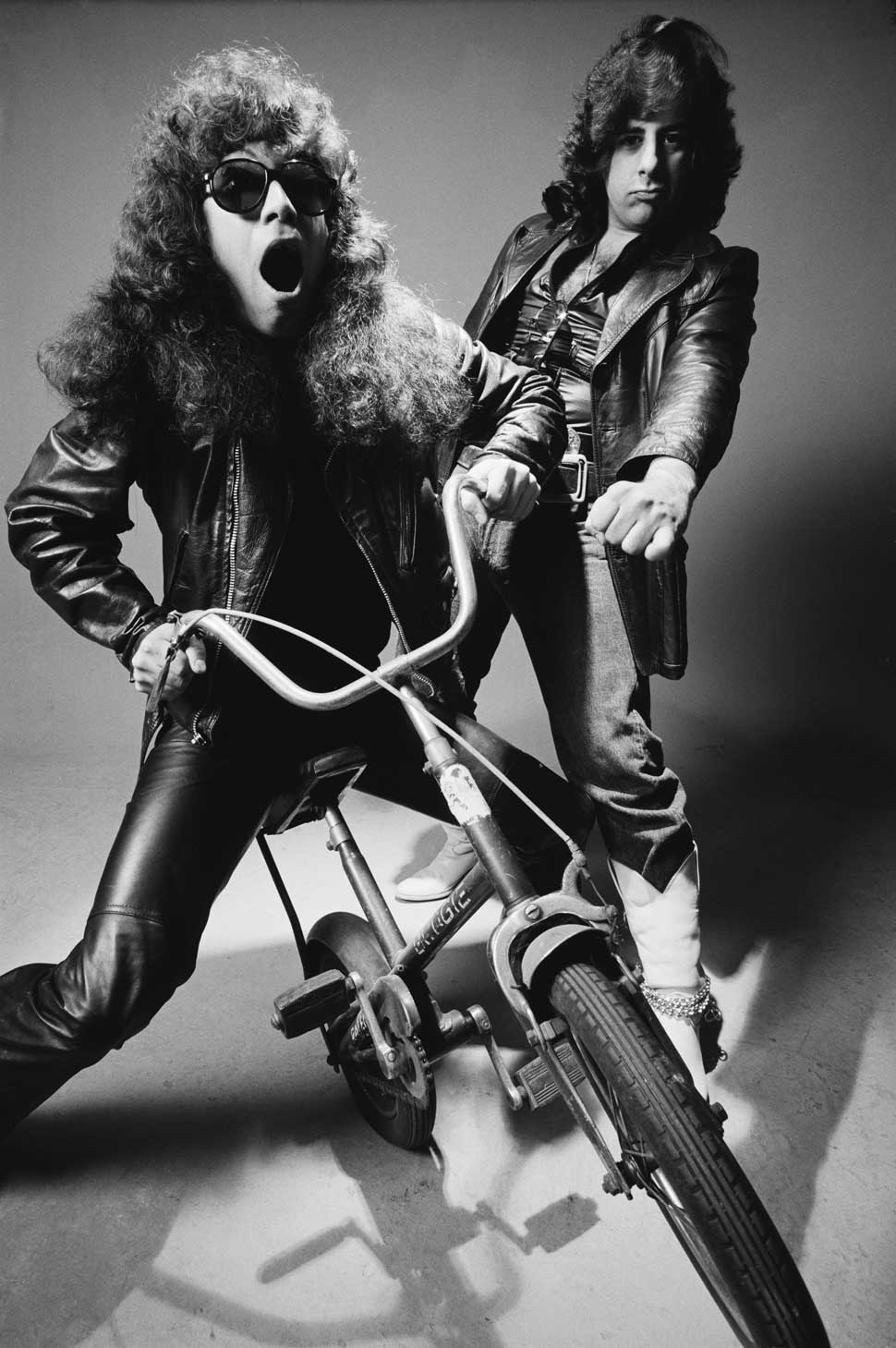
To make matters worse, after a nerve-jangling episode with a mad bus driver, Moore’s long-time partner in grime Bob Hill, quit the band in 1980.
“Well, see, the bus driver was going the wrong way down the highway,” Moore laughs. “We were in country where you can’t pull off to the side of the road, and there was a big divider between the highway, so we had to go until there was one of those cut-throughs that the highway patrol uses. We were flashing every light in the bus that would flash.
“When we got to the driver, he was steering with his knees,” Moore says. “His headphones were on so loud playing Pink Floyd that we could hear it in the back of the bus, and he was rolling a joint. Luckily we somehow made it through. But after it was over, Bob said, ‘Hey man, I’m a millionaire already, I don’t need to do this’.”
Moore was crushed. “I understood his viewpoint, and it killed me. We were just breaking big at the time, and we came from absolutely nothing, no money, no family, nothing. Quitting was all just beyond imagination for me.”
Thoroughly defeated, Moore returned to Ohio and formed the Eric Moore Band. He has been active ever since, both as a solo artist and, when the mood hits, as a God. “I don’t make a lot of money,” Moore says. “I could make a lot more as a drug dealer. But this is the path I chose, and it’s the right path.”
Isn’t it frustrating to know how close The Godz were to rock stardom? “Hey, I don’t care if someday they gotta sit me on a seat with a little table next to me with an ashtray and some cigarettes and a bottle of whisky and a bucket on the other side for me to spit blood in,” he says. “I’ll just sit down and do the blues. I mean, I don’t want that to happen, but if it does, well, that’s still a good life. I left home the week of my fourteenth birthday and I joined the rock’n’roll circus. And I’ve never been back.”
This feature originally appeared in Classic Rock 134, in August 2009.
Came from the sky like a 747. Classic Rock’s least-reputable byline-grabber since 2003. Several decades deep into the music industry. Got fired from an early incarnation of Anal C**t after one show. 30 years later, got fired from the New York Times after one week. Likes rock and hates everything else. Still believes in Zodiac Mindwarp and the Love Reaction, against all better judgment.
